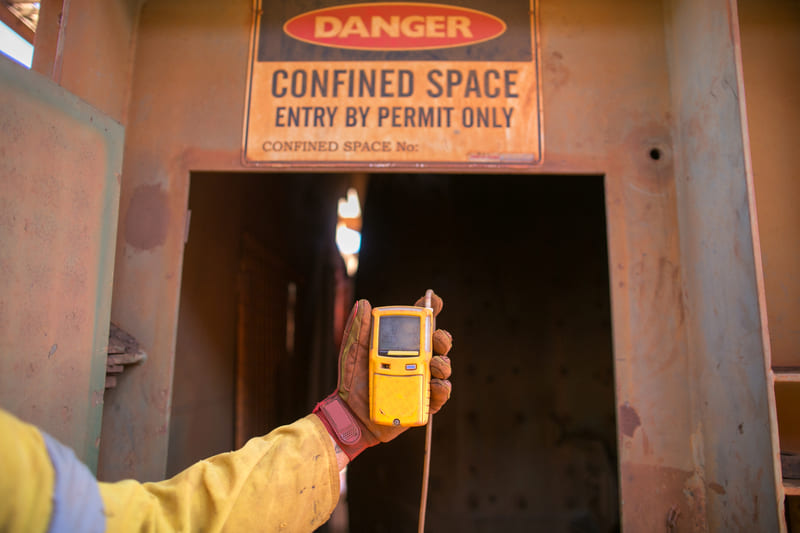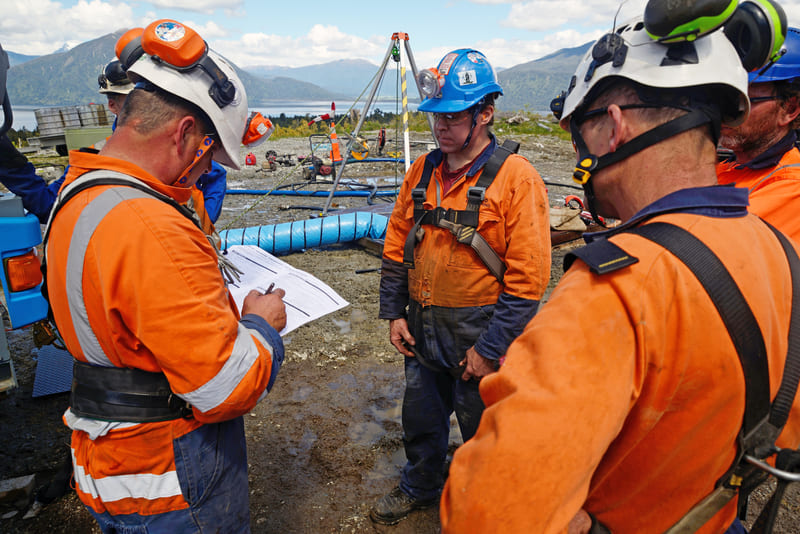Asafety officer course trains individuals to become overarching safety experts, something that is becoming increasingly sought after in multiple industries around the world. This article will be looking at this course and the skills it instils, emphasizing the versatility of its application and the many career opportunities it opens for certified safety officers as a result.
Below we will first define a safety officer, then look at course content, relevant industries, soft skills and potential career paths and opportunities. This article is brought to you by EMCARE, a South African provider of top-notch emergency response courses.
Safety Officer Course: Defining A Safety Officer?
Safety officers are the trained professionals responsible for, in the simplest terms, keeping a workplace safe. The core responsibilities of a safety officer include risk assessment, making regular compliance checks on a workplace and training staff for disaster prevention. Each of these key roles can be further broken down into countless smaller tasks, which can vary greatly in character depending on the exact industry a safety officer finds themselves in.
Anyone can become a safety officer with the right training, but the key traits and skills that should be already present are a keen attention to detail, excellent communication and a head for managing a crisis.
What Does A Safety Officer Course Cover?
The course to become a safety officer is an extensive one. As there should be no half-measures when working to ensure the safety and lives of people. The course will be divided into major modules including occupational health and safety regulations, effective emergency response planning, hazard identification and management, environmentally friendly practices, fire safety and first aid. Once the course has been completed and the student satisfactorily passes all of the relevant examinations, they will then become a certified safety officer.
Having a certified safety officer present at any workplace is a major necessity in many industries, especially in those that are classified as dangerous or where there is a reasonable expectation of injury possibilities. Not only will these officers help safeguard their workplace and workforce, but their mere presence may simply check the boxes needed for several health and safety compliances.
However, any good safety officer will have developed the necessary critical thinking skills to recognize that there is always more to learn. A safety officer will supplement the essential knowledge and skills gained from their course by paying close attention to their assigned workplace, discovering new situationally relevant information and adapting their skills to the environment.
Industries That Require Safety Officers
There are many industries that absolutely require the attention of safety officers, some of which are less obvious than others. Construction and engineering are the most cited examples, as there is major reliance on safety officers to ensure accident prevention. Within manufacturing and warehousing industries, safety officers are called to oversee the safe operation of machines and the handling of dangerous chemicals.
Within healthcare, safety officers are responsible not only for patient safety, but for careful control of infection. The mining industry heavily relies on these officers to build emergency response protocols in reaction to the many threats within the workplace. The aviation and long-distance transportation industry uses officers to keep themselves within regulation and to ensure emergency preparedness. The hospitality industry even uses them, especially during larger events, to oversee crowd control and keep an eye on fire hazards.
More and more corporate and office environments are beginning to employ safety officers too, using them to not only ensure the safety of the workplace, but to address issues like ergonomics and the mental wellbeing of staff.

The Soft Skills Taught Beyond the Hard Hat
Whilst a safety officer course is replete with plenty of hard and practical skills, it also emphasises a number of softer skills that often come into play to create more friendly workplaces. One of the forefront skills of a safety officer will be effective leadership and communication skills, allowing them to lead others without having to rely on domineering presence. They will be taught to look at their fellow staff with care, paying close attention to the relationships that exist between members of the workforce.
Within that realm, they’ll help to resolve conflict and effectively manage teams, often done by promoting communication through example. Considering the immense role that stress has on not only the mental, but also physical wellbeing of the workforce, safety officers will do what they can to address unhealthy levels of stress within a workplace. This can often be done by promoting a culture of mental health awareness and destigmatizing the act of asking for help. Especially in the modern context, businesses are also becoming aware of the value of safety officers who can carry out training in a culturally sensitive manner.
The Diversity Of A Safety Officer Course: Career Paths and Opportunities
Safety officers themselves have plenty to gain across a fruitful career. The field is rife with opportunities to specialize into domains such as construction safety, fire management, environmental health and more. Even outside of the purview of a safety officer, those who have taken the course will find the skills to be broadly applicable and easily transferrable.
This offers excellent job security and plenty of opportunities for advancement in not only South Africa, but the world around. The demand for these skills is only increasing, as more and more industries both recognize and legally require the skills of a safety expert.

The Diversity Of A Safety Officer Course Takeaway
In conclusion, safety officers are expert individuals responsible for the overarching safety of their workplace. Using both hard and soft skills, they help to manage and mitigate risks that exist both within the physical work environment and the minds of those who work there.
These individuals are able to find in-demand work across a broad host of industries and thereafter take additional steps to specialize and advance. Whether you decide to become a safety officer or merely absorb the highly transferrable skills within the course, contact EMCARE today to begin your own training.















